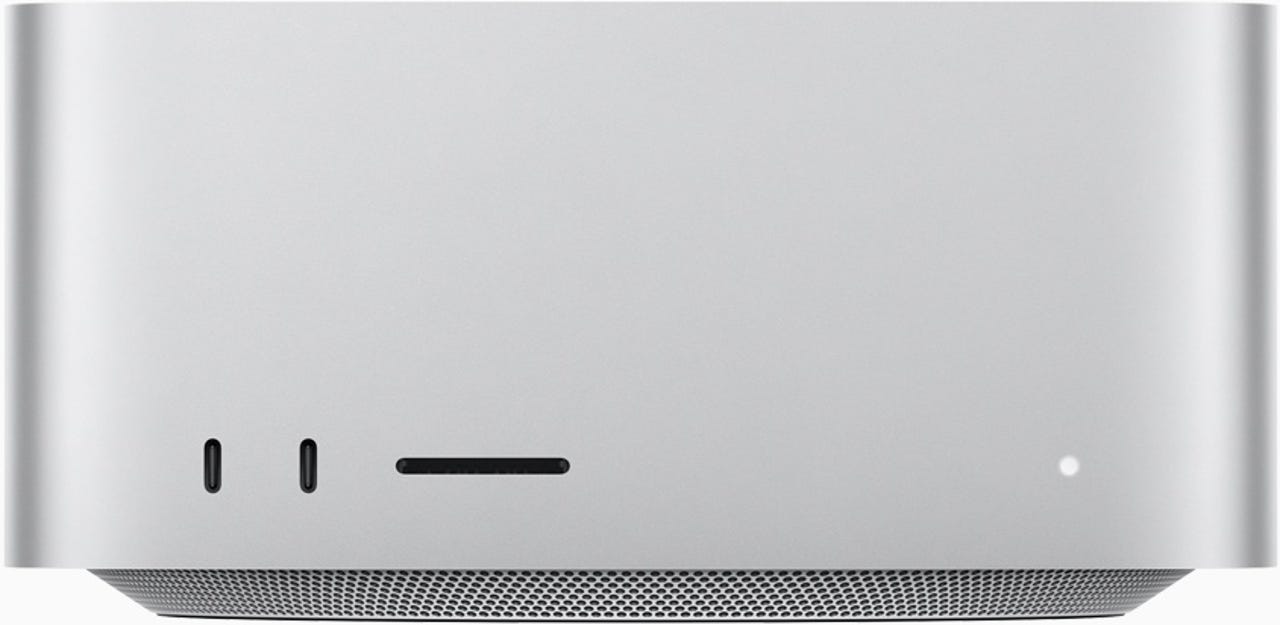'ZDNET Recommends': What exactly does it mean?
ZDNET's recommendations are based on many hours of testing, research, and comparison shopping. We gather data from the best available sources, including vendor and retailer listings as well as other relevant and independent reviews sites. And we pore over customer reviews to find out what matters to real people who already own and use the products and services we’re assessing.
When you click through from our site to a retailer and buy a product or service, we may earn affiliate commissions. This helps support our work, but does not affect what we cover or how, and it does not affect the price you pay. Neither ZDNET nor the author are compensated for these independent reviews. Indeed, we follow strict guidelines that ensure our editorial content is never influenced by advertisers.
ZDNET's editorial team writes on behalf of you, our reader. Our goal is to deliver the most accurate information and the most knowledgeable advice possible in order to help you make smarter buying decisions on tech gear and a wide array of products and services. Our editors thoroughly review and fact-check every article to ensure that our content meets the highest standards. If we have made an error or published misleading information, we will correct or clarify the article. If you see inaccuracies in our content, please report the mistake via this form.
Apple's new Mac Studio: The Mac Mini grows up


Front view of the Mac Studio
Apple debuted its Mac Studio desktop PC at today's Peek Performance event. The unit resembles a slightly larger Mac Mini with an increased number of I/O ports, but its internal components put it in direct competition with the most powerful Mac Pro models Apple currently offers.
The Mac Studio will come in two versions: one based on the M1 Max chip and another based on the just-announced M1 Ultra, Apple's new top-tier SoC offering. The unit's outside consists of a 7.7-inch square unibody aluminum extrusion sporting a vast array of I/O ports. For data, it has 4 Thunderbolt 4 ports, a 10G Ethernet port, 2 USB-A ports, an HDMI port, and a Pro Audio port capable of running high-impedance headphones or powered speakers. It also supports Wi-Fi 6 for wireless connectivity.
Back view of the Mac Studio.
The front I/O includes 2 USB-C ports (supporting Thunderbolt 4 on the M1 Ultra version) and an SDXC card slot.
All of these connections are powered by some of the fastest internal components Apple has ever produced. The M1 Max version of the Mac Studio supports up to 64GB of video memory, while the M1 Ultra version bumps that to 128GB. Storage is taken care of by an SSD capable of 7.4Gbps of throughput, with up to 8TB of onboard capacity. A table with the full spec ranges for both versions follows.
Mac Studio version | M1 Max | M1 Ultra |
CPU cores | 10-20 | 20 |
GPU cores | 24-64 | 48-64 |
Neural Engine cores | 16-32 | 32 |
Unified memory | 32GB-128GB | 64GB-128GB |
Storage | 512GB-8TB | 1TB-8TB |
All told, the M1 Max version is up to 50% faster than the 16-core Xeon-powered Mac Pro, while the M1 Ultra edition can go up to 60% faster than Apple's top-end 28-core Xeon machine.
Predictably, all of this power comes at a cost. The M1 Max version of the Mac Studio starts at $1,999, while the M1 Ultra version begins at $3,999. Both versions are up for pre-order nowand are expected to be available on March 18.
Apple is positioning both version of the Mac Studio as being fully capable of serving as the heart of professional photo, video, and sound editing operations. To further equip its creative customers, Apple also debuted its new Studio Display line. These 5K Retina Displays feature a built-in 12MP webcam and multiple built-in mics for audio chat, as well as optional "Nano-texture glass" to reduce glare.
The Apple Studio Display is also available now, with pricing beginning at $1,599 for the standard glass edition and $1,899 for the Nano-glass model.
Creatives on the go were also included in Apple's event, with a new, M1-powered iPad Air launching for a $599 starting price. Teh latest model supports both the Apple Pencil 2 and Magic Keyboard or Folio.